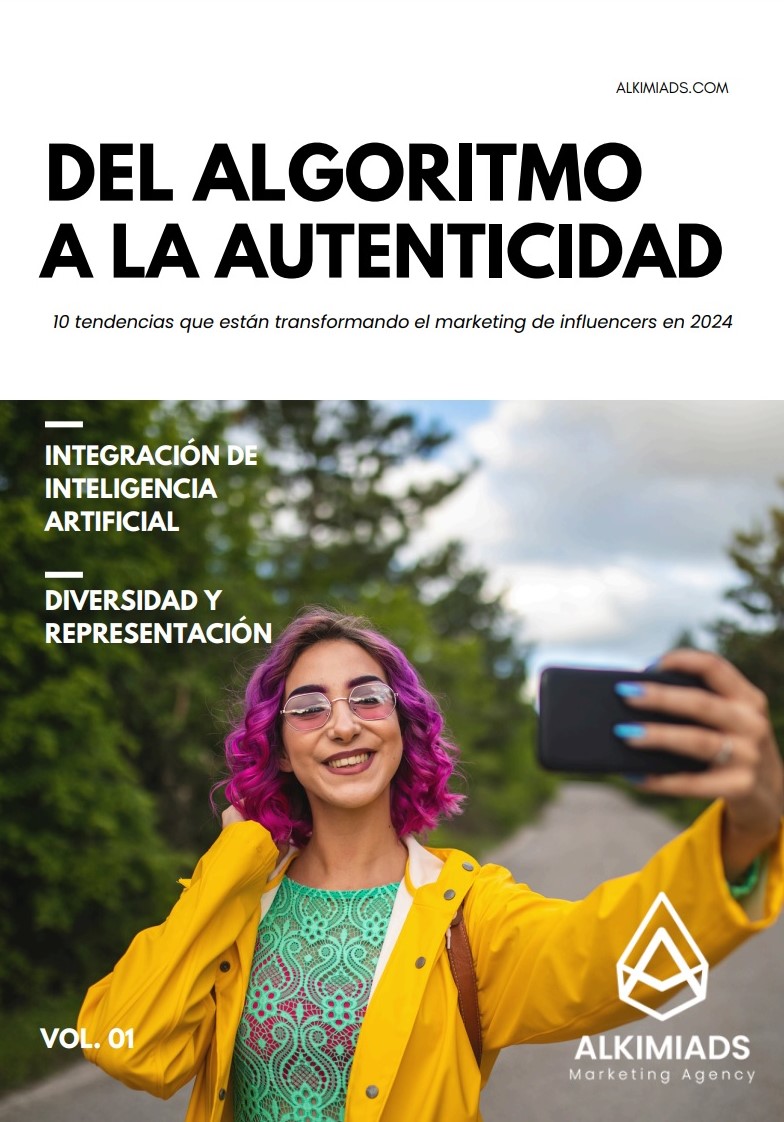Learn how to navigate the complex world of ethical influencer marketing and ensure authentic collaborations with social media influencers for your brand.
Influencer marketing has become a dominant force in the digital age, with brands leveraging the power of social media influencers to promote their products and services to a wider audience. However, as the industry continues to grow, the importance of ethical considerations and authenticity in influencer collaborations cannot be overlooked.
By understanding the impact of ethical practices and fostering genuine connections with influencers, brands can build trust with their audience and create successful and meaningful partnerships in the ever-evolving world of influencer marketing.
In this article, we will delve into the complexities of navigating ethics and authenticity in influencer marketing, and explore how brands can ensure responsible collaborations with social media influencers. Brands must prioritize transparency and authenticity in their partnerships with influencers, whether in the dissemination of sponsored content, in the promotion of honest and genuine relationships with influencers, or in any other partnership.
Table of Contents
Exploring the Role of Ethics in Influencer Marketing
Social media influencers have become a key component in the influencer industry, using their platforms to reach and engage with social media users. influencers must navigate the ethics of authenticity in their production of sponsored content. This calls for influencers to prioritize transparency in influencer marketing to maintain the trust of their audience. By upholding the notion of authenticity, influencers can build a loyal following and positively impact social networking. However, some influencers may blur the lines between sponsored and organic content, leading to concerns about the effects of influencer marketing strategies.
Within the influencer community, the digital labor that influencers perform is a vital aspect of influencer marketing practices. Many influencers collaborate with brands to create genuine social media content that resonates with their audience. As content creators, influencers often use their platforms for social impact, demonstrating the role of social in the use of social media. Influencers and brands must uphold ethical standards in social media influencer marketing to maintain the integrity of the industry.
Understanding the Importance of Transparency in Sponsored Content
In this social media age, influencers on social platforms play a significant role in promoting products and services through sponsored content. Influencers use their influence to reach a large following and generate engagement on various social media platforms. However, the construction of authenticity by social media influencers can sometimes be misleading. While influencers and their followers may feel connected through the content on social media, influencers might not always disclose when they are promoting a product or service as part of a marketing campaign.
This lack of transparency can lead to a blurred line between genuine recommendations and paid promotions, impacting the trust between brands and influencers. To ensure success with influencer marketing, brands must not only collaborate with influencers but also ensure that influencers maintain transparency in their sponsored content. The discussion of how social media authenticity is further complicated by sponsored content raises important questions about ethics and consumer trust in the digital marketing landscape.
Examining the Ethics of Influencer Collaborations with Brands
Influencers have the power to create virtual communities and shape perceptions of influencer authenticity through their social media use. The rise of social media influencers has transformed the role of social media in branding and marketing strategies. Brands and influencers must navigate the ethics of influencer collaborations to maintain the trust of their followers. Social media influencer communication requires influencers to disclose information on social media partnerships to uphold ethical standards and transparency. The power of influencers on social networks is undeniable, as they possess social and cultural capital that can influence the behaviors and purchasing decisions of their followers.
The impact of social media on consumer behavior has led to the increasing importance of influencer collaborations with brands. The authenticity and credibility of influencers are key factors that impact the effectiveness of influencer marketing campaigns. Followers of social media influencers rely on these influencers to provide honest and genuine recommendations, which necessitates a level of transparency in their collaborations with brands.
As the ethics and social implications of influencer collaborations continue to be scrutinized, brands and influencers need to prioritize ethical practices in their partnerships. Ultimately, maintaining trust and authenticity in influencer collaborations is crucial for long-term success in the ever-evolving landscape of social media marketing.
Ethical Guidelines for Social Responsibility in Influencer Content Creation
The influencer marketing landscape thrives on trust and authenticity. Influencers build communities around shared interests and values, and their recommendations hold significant weight with their followers. However, with this power comes a responsibility to promote ethical practices and social good. Here are some key guidelines for influencers to navigate the world of content creation responsibly:
Transparency and Disclosure:
- Be upfront about sponsored content and brand partnerships. Clearly mark any posts where you’ve received compensation or free products.
- Disclose any affiliate links. If you earn a commission from clicks or purchases made through your links, let your audience know.
Authenticity and Endorsements:
- Only promote products or services you genuinely believe in and have used.
- Avoid misleading claims or exaggerating product benefits. Your audience trusts your opinion, so be honest and transparent in your reviews.
- Promote diversity and inclusion. Partner with brands that reflect the values of your audience and advocate for social responsibility initiatives.
Social and Environmental Impact:
- Be mindful of the environmental impact of your promotions. Consider the sustainability practices of brands you endorse.
- Promote social causes you care about and encourage your audience to get involved.
- Avoid promoting unrealistic beauty standards or products that could be harmful to physical or mental well-being.
Data Privacy and User Rights:
- Respect the privacy of your followers. Don’t share personal information without their consent.
- Be mindful of data collection practices when partnering with brands. Ensure your audience understands how their data is being used.
By following these ethical guidelines, influencers can create content that is both engaging and responsible. They can build stronger relationships with their audience, promote positive values, and contribute to a more ethical and sustainable influencer marketing ecosystem.
Balancing Authenticity with Marketing Campaign Objectives
When it comes to influencer marketing, finding the balance between authenticity and meeting marketing campaign objectives is essential. Influencers are valued for their authenticity and ability to connect with their followers genuinely. However, it is also important for brands to ensure that their marketing objectives are being met through these partnerships. Striking the right balance between the two can lead to a successful influencer marketing campaign that resonates with the audience while also achieving the desired outcomes.
One way to balance authenticity with marketing goals is to carefully select influencers whose values and interests align with those of the brand. Authenticity shines through when influencers genuinely believe in the products or services they are promoting. This not only fosters trust with their audience but also helps to ensure that the campaign goals are being met. By choosing influencers who are a natural fit for the brand, marketers can create more authentic and effective partnerships.
Another strategy for balancing authenticity with marketing objectives is to give influencers creative freedom within the campaign guidelines. Allowing influencers to inject their personality and style into the content they create can help maintain the authenticity of the partnership while still meeting the brand’s marketing goals. This approach can result in more engaging and relatable content that resonates with the audience on a deeper level.
Ultimately, finding the right balance between authenticity and marketing objectives in influencer marketing requires a thoughtful and strategic approach. By prioritizing genuine connections and aligning influencers with the brand’s values, marketers can create successful partnerships that drive results while also maintaining the trust and loyalty of their audience.
Impacts of Authenticity on Audience Engagement and Loyalty
One of the key factors that impact audience engagement and loyalty in influencer marketing campaigns is the authenticity of the influencers. Authenticity refers to how genuine, real, and true an influencer is to their followers. When influencers are authentic, they are more relatable and trustworthy to their audience, leading to higher engagement levels. Authenticity allows influencers to connect with their followers on a deeper level, creating a sense of community and belonging. This, in turn, drives audience engagement and loyalty, as followers feel a genuine connection with the influencer.
Authentic influencers can build a loyal and dedicated following because their audience can trust them to be honest and transparent about the products or services they promote. When influencers promote products authentically, their followers are more likely to believe in the credibility of the endorsements. This trust leads to increased engagement, as followers are more likely to interact with the influencer’s content and recommendations. Additionally, loyal followers are more likely to continue following and engaging with the influencer in the long term, leading to sustained audience engagement and loyalty.
On the other hand, influencers who lack authenticity may struggle to maintain audience engagement and loyalty. Followers can easily spot inauthenticity and may feel disconnected or alienated from influencers who come across as fake or insincere. This lack of trust can lead to decreased engagement levels, as followers may be less likely to believe in the influencers’ recommendations or content. In the long run, this could result in a loss of followers and a decline in overall audience loyalty.
In conclusion, the authenticity of influencers plays a crucial role in impacting audience engagement and loyalty in influencer marketing campaigns. Authentic influencers can foster trust, connection, and loyalty with their followers, leading to higher levels of engagement and sustained audience loyalty. Brands looking to run successful influencer marketing campaigns should prioritize partnering with authentic influencers who can effectively engage and retain their audience

Challenges and Solutions in Maintaining Authenticity
Finally, here are what I consider to be the challenges and answers about ethics in influencer marketing
· Challenges: Maintaining authenticity can be challenging in a world where social media and online presence often pressure individuals and businesses to present a curated version of themselves. The constant need to keep up with trends and portray a certain image can lead to a loss of authenticity and genuineness. Additionally, external influences and societal expectations can make it difficult to stay true to oneself and one’s values.
· Solutions: One solution to maintaining authenticity is to focus on being true to oneself and not succumbing to external pressures. This involves staying true to one’s values, beliefs, and personality, even in the face of societal expectations. Building meaningful connections with others who appreciate authenticity can also help in staying true to oneself.






















